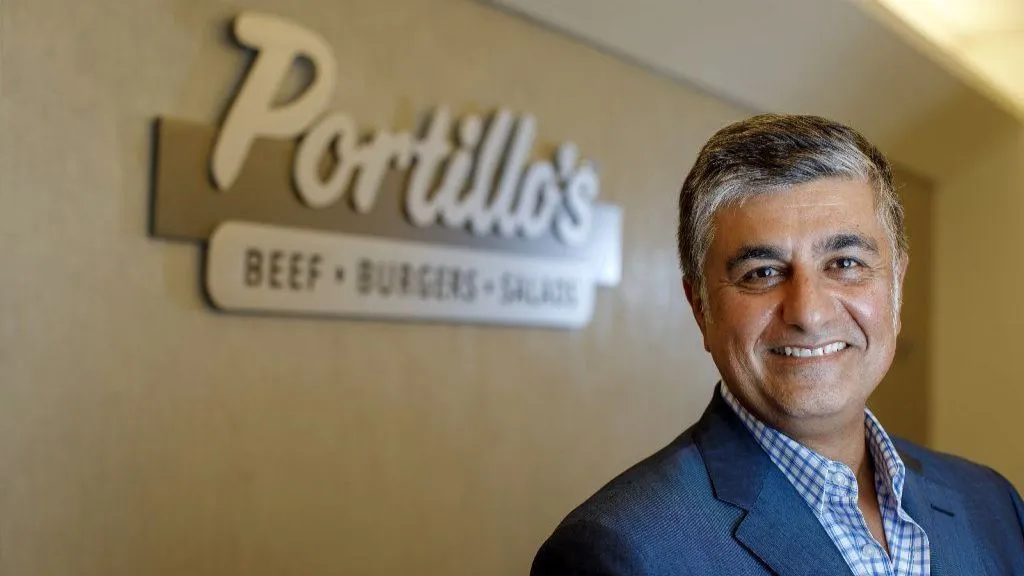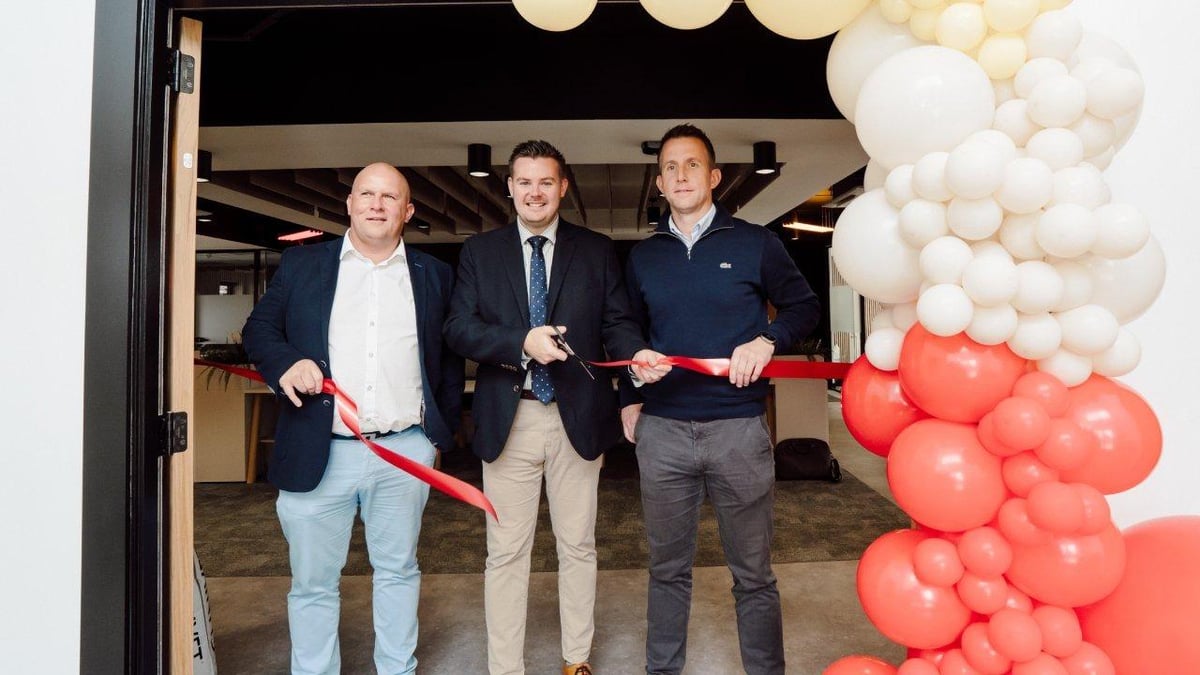
Facing disappointing sales and downsized expansion plans, Portillo’s announced the abrupt departure Monday of CEO Michael Osanloo.
Osanloo, who had been president and CEO of Portillo’s since 2018, oversaw the Oak Brook-based restaurant chain through an initial public offering and an ambitious growth strategy, which has since been reined in amid lowered revenue projections and a sinking stock price. His exit follows a recent strategic reset for the company.
Michael Miles, the former COO of Pizza Hut, who has been Portillo’s chairman since 2014, will serve as interim CEO while the board conducts a search process for Osanloo’s successor.
“On behalf of the full Board, I want to thank Michael for his leadership over the last seven years and the role he played in guiding the company through its IPO and expansion to new markets,” Miles said in a news release. “The Portillo’s brand resonates deeply with our guests, but our recent performance has not measured up to expectations. After careful consideration, the Board believes, and Michael agrees, that now is the right time for a leadership transition.”
Portillo’s, famous for its Italian beef, hot dogs and other Chicago-style offerings, lowered revenue guidance and announced a revised growth strategy earlier this month amid slower store traffic and tepid financial performance.
The revised strategy includes cutting the number of openings planned for 2025 from 12 to eight, shifting to smaller-format stores and ending the Chicago breakfast experiment, among other initiatives.
At a conference earlier this month, Osanloo said the downward trend in store traffic was worsening systemwide during the third quarter. The restaurant chain has been generating disappointing results for several years as it pursued aggressive expansion in and beyond its core markets.
Launched as a Villa Park hot dog stand in 1963, Dick Portillo expanded his menu to include Italian beef, burgers, salads and more, and built his chain to 38 restaurants in Illinois, Indiana, California and Arizona before selling to private equity firm Berkshire Partners in 2014.
When Portillo’s went public in October 2021, it had 67 restaurants in nine states, raising $405 million through the offering with an ambitious plan to expand to 600 locations nationwide.
Since then, Portillo’s has grown to 95 company-owned restaurants in 10 states, but its stock has fallen about 87% from the post-IPO high and the chain has been under pressure from activist investors Engaged Capital over concerns about flat sales and expensive restaurant buildouts.
In June, Portillo’s added Eugene Lee, former CEO and chairman of Darden Restaurants, as a director at the recommendation of Engaged, which previously helped get former Chipotle executive Jack Hartung nominated to the board in January.
Lee will serve as temporary lead director of the board during the CEO transition, Portillo’s said in its news release. The board will be hiring a global executive search firm to help find a new CEO, the company said in a filing this week with the Securities and Exchange Commission.
Engaged, which currently holds a 7% stake in Portillo’s, declined to comment Tuesday on Osanloo’s departure.
Slowing down the expansion of Portillo’s into new markets is a key part of the recently announced reset strategy. The chain, which opened 10 restaurants last year, plans to add eight this year — four fewer than the original target — and eight next year, including six already under construction.
Portillo’s is also building smaller restaurants as it expands, lowering construction costs to less than $5 million per store by 2026.
Overly aggressive expansion in Texas, where Portillo’s has opened a dozen stores since planting its flag in suburban Dallas in January 2023, is emblematic of the challenges the chain encountered as it took its Chicago-style fare to distant markets, where the demand for Italian beef and hot dogs has fallen short of expectations in a tough restaurant environment.
Darren Tristano, CEO of FoodserviceResults, a Chicago-based research and consulting firm, said Osanloo is taking the fall for an expansion strategy that has produced disappointing results.
“The CEO is responsible for execution of any plan,” Tristano said. “Choosing the right locations, expanding at the right speed, getting the performance you need, is all part of running a business. You don’t get paid the big bucks to not do that. And when you’re the highest executive in a public company, the finger gets pointed towards you.”
Osanloo, who previously served as CEO of the P.F. Chang’s restaurant chain, earned more than $2 million in salary and incentive compensation as president and CEO at Portillo’s in 2023, according to financial filings.
Compensation for Miles as interim CEO had not been finalized at the time of the SEC filing about the leadership change this week.
While Osanloo has also resigned from the Portillo’s board, he will “support the transition” as an advisor to Miles over the next 90 days, according to the news release.
Separation “without cause” entitles Osanloo to undisclosed severance benefits, according to the SEC filing. Portillo’s said it expected to enter into a release agreement with Osanloo at a later date.
“Leading Portillo’s has been one of the great honors of my career,” Osanloo said in the news release. “I am so thankful to my leadership team and all our team members whose hard work and heart make this brand iconic.”
rchannick@chicagotribune.com



